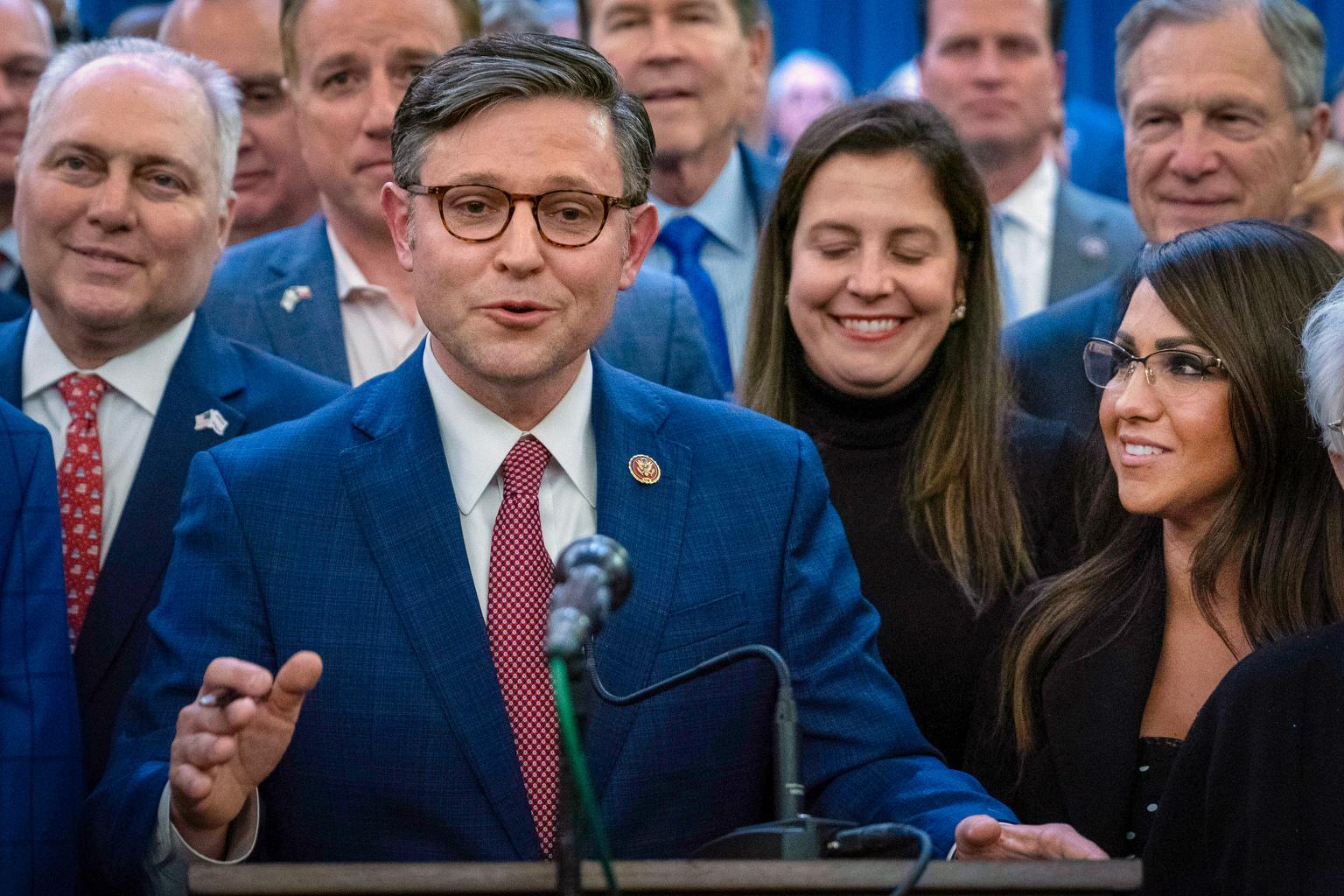
After 22 days and numerous discarded candidates, Louisiana Rep. Mike Johnson succeeded where others failed: he united the GOP House conference long enough to get elected Speaker of the House.
Unlike with past nominees, all three Colorado Republicans supported Johnson’s bid when it came to the floor. Once again, all Colorado Democrats put their support behind Democratic Leader Hakeem Jeffries.
“I believe Mike will finally unite our party by securing our borders, passing 12 individual appropriations bills, and holding the Biden Administration accountable,” Rep. Lauren Boebert wrote on X, the social media site formerly known as Twitter.
While Boebert was part of the large group of lawmakers who surrounded Johnson late Tuesday night when he cinched the conference’s support, she was also part of a bloc that would not get behind the conference’s first speaker designate, Rep. Steve Scalise.
In addition to representatives’ exhaustion after the weeks of chaos and deep division, Johnson’s candidacy benefited from him being low enough, and new enough, in leadership not to have made that many enemies.
GOP Rep. Doug Lamborn said Johnson is a person the conference likes and respects. “He hasn’t made any enemies, which is a big deal because five enemies — or people that just don’t like you — these days, that’s enough for some people to cast their vote the other way instead of respecting the conference.”
Johnson, who was the vice-chair of the Republican conference before today’s vote, also won over GOP Rep. Ken Buck, who withheld his support from the conference’s second designate, Jim Jordan, over concerns about several issues, including his efforts on behalf of former president Donald Trump after the 2020 elections and his opposition to Ukraine aid.
Like Jordan, Johnson has also been a strong ally of Trump. He was a key architect of the objections cited by the House Republicans who voted to overturn the 2020 election results, was part of Trump’s defense during the first impeachment and was behind an amicus brief backing a Texas lawsuit to intervene in vote counting in key battleground states.
Buck, who has served on the Judiciary Committee with Johnson, defended his vote Wednesday by noting that while Jordan was involved in much of the post election activity, Johnson was not. Buck and Lamborn signed on to the amicus brief in the Texas case.
“I know that he voted to decertify. I knew that he wrote the brief. But I also know from the January 6th report and other things, he was not intimately involved in the planning or operation of January 6th,” he said.
While Buck’s vote to remove Kevin McCarthy as speaker helped launch this Groundhog’s Day of failed nominees, his comments this week hinted at the frustration many in the conference were feeling at just how long it took for them to elect a new speaker.
Buck thinks everyone has learned a lesson. “The reality is that we can’t go through this exercise again. We have somebody that 217 people initially have confidence in — much different than the 15 votes with Speaker McCarthy. So I think we will move forward and everybody will be more willing to compromise.”
Democratic Rep. Joe Neguse has also served with Johnson on the House Judiciary Committee. He was less sanguine than Buck about the new speaker. Neguse said it is “deeply problematic to elevate someone” who was the chief legal architect of the effort to overturn the 2020 election in the House.
“I think it is, unfortunately, reflective of where the Republican Party in the House is today in Washington. And it is deeply out of step with the vast majority of the American people,” he said. Still, he added, Democrats will try to find ways to find common ground where possible.
Johnson’s sudden rise to the chamber’s top spot, which puts him second in line to the presidency, came just hours after he lost a caucus vote to Rep. Tom Emmer, who was the conference’s third speaker candidate. Trump helped torpedo Emmer’s efforts by coming out against him hours later.
Johnson comes into the role with a small staff, relatively modest fundraising, little leadership experience compared to his Democratic counterpart and the leaders of the Senate and lots of pressures facing him. Those include the fact government funding is set to run out in 23 days and questions about aid to Israel and Ukraine.
The House has only passed four of the 12 appropriations bills, with another two still in committee. The Senate is in the process of passing a ‘minibus’ made up of three appropriations bills.
Johnson has proposed to the conference that the House approve another stopgap funding measure, this one lasting until Jan 15 or April 15, to avoid a government shutdown and give them time to pass all the bills and negotiate with the Democratic-controlled Senate and White House. The proposal comes after he voted against the last stopgap funding measure that led to McCarthy’s ouster.
Earlier in his time in Congress, Johnson chaired the conservative Republican Study Committee, one of the largest groups in the Republican caucus.
He is his delegation’s most effective lawmaker, according to the Center for Effective Lawmaking, even as he’s ranked at the bottom of the Lugar Center’s Bipartisan Index. In the most recent list, he was behind Jordan and above only a handful of other lawmakers, including Boebert.
Before coming to Congress, Johnson worked at conservative Christian legal advocacy group and served in the Louisiana House of Representatives, where he authored the Marriage and Conscience Act in 2015 in the wake of the U.S. Supreme Court decision legalizing same-sex marriage. He said that the goal was to prevent the government from discriminating against anyone based on their religious views around marriage. But opponents said it would allow discrimination against LGBTQ people. The bill did not become law.









